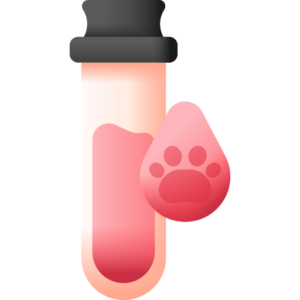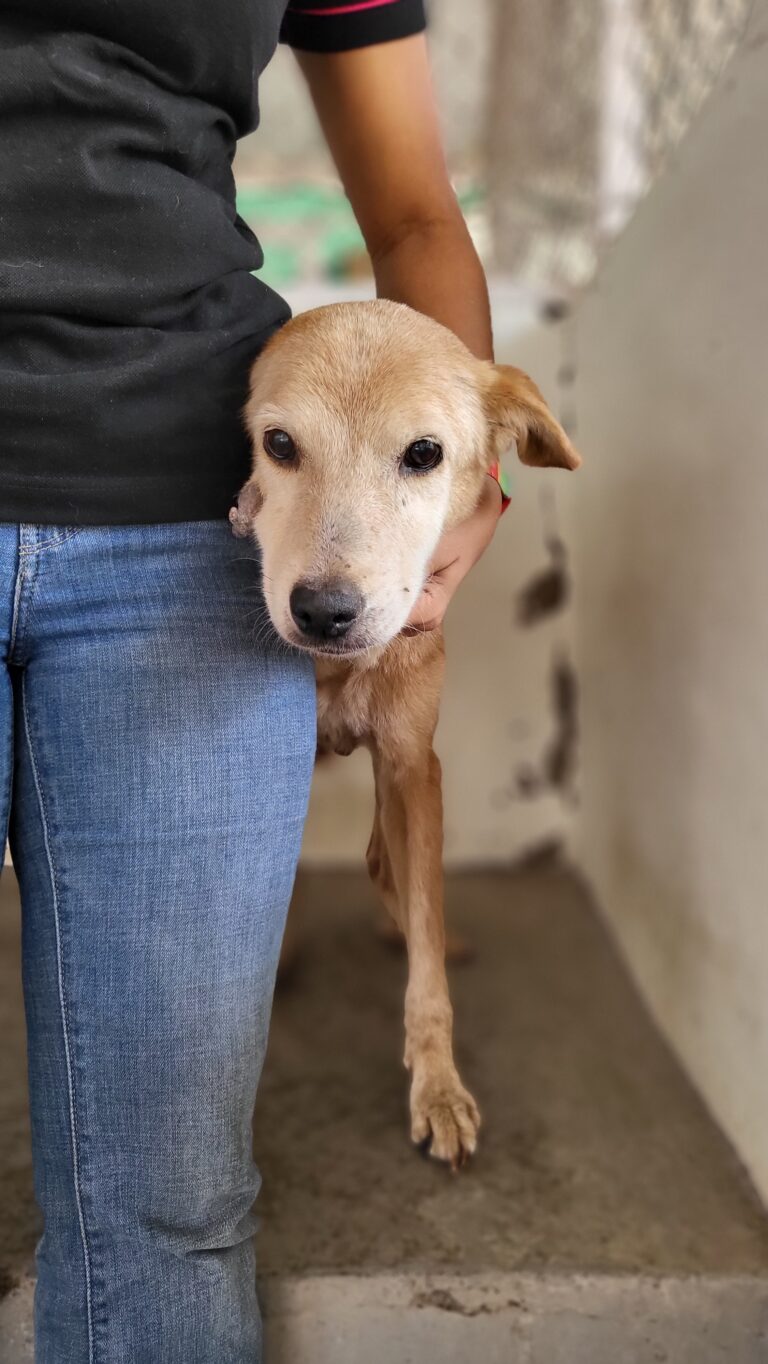In veterinary medicine, diagnostics and hematology play important roles as they provide vets with crucial information to assess, diagnose, and provide accurate treatment to the animals.
Diagnostic tools like blood tests, X-rays, and ultrasounds are used in veterinary medicine for detecting diseases and conditions early to start necessary treatments.
Analysing blood samples can provide vital information about an animal’s health, it’s used to uncover health issues like infection, anaemia, and clotting disorders. These tests are important for monitoring chronic conditions.
Hematology and diagnostics are crucial instruments for comprehensive efficient veterinary care that improves the animals’ quality of life.
At BCS, we recognize the importance of accurate and affordable diagnostic services for the care of stray cats and dogs. We offer essential tests like blood panels (CBC, LFT, KFT) crucial for early disease detection at reasonable rates, making it easier for you to prioritize your furry friend’s health without financial worry.
Understanding the variability in X-ray costs due to factors like pet size, injury severity, and sedation needs, we strive to keep our prices well below market rates. This commitment ensures you can afford the necessary care for your stray dog/cat or Indian mixed breed pet dog/cat.
Visit BCS for high-quality, cost-effective diagnostics that make a real difference in the health and well-being of dogs and cats under your care.
These blood tests are important for veterinarians to check the overall health of animals and identify medical conditions.
These blood tests are important for veterinarians to check the overall health of animals and identify medical conditions.

It helps to check red blood cells, white blood cells, and platelets. It is used for the diagnosis of anemia, inflammation, and clotting disorders.

This test is done to check the organ functions of the kidney, liver, and pancreas.

These tests are used to check the thyroid hormone levels and diagnose hyperthyroidism or hypothyroidism in pets.

This test is performed to check the antigens in the blood, and heartworm disease, if left unchecked, can be fatal.

Feline Leukemia Virus and Feline Immunodeficiency Virus Tests are done to check the existence of these viruses in cats, which can cause serious sickness.

This test is performed to check the presence of Parovirus, which can be extremely dangerous, especially in puppies.

This is done to check for bleeding disorders — clotting of blood.

This test is done to identify allergens that cause allergies in dogs and cats.

This test is done to check the respiratory function and acid-base balance as it measures the levels of oxygen and CO2 in the blood.

This test helps in the diagnosis of diseases such as Multiple Myeloma in dogs as it measures protein types in the blood.
Blood tests are crucial in veterinary care for dogs and cats, as they have a critical role to play:
Blood tests are useful to detect diseases early, recognize health issues before symptoms are visible, and initiate timely treatment. These tests provide an overall assessment of organ function, blood cell counts, and metabolic health. They are vital to identify various conditions, such as infections and chronic diseases.
With regular monitoring, blood tests track the performance of the treatments, and adjustments can be made to achieve better results.
Regular health screening helps identify early signs of disease risk and prolong the lives of animals. A blood test can also establish the root causes of symptoms and find an exact diagnosis. They play a critical role in recognizing the readiness of the animal before surgery and helping to minimize any risk.
To ensure animals receive timely and suitable care Blood tests are crucial tools in veterinary medicine for them to lead a healthy and happy life.
Blood tests, including CBC, LFT, and KFT are crucial tests to detect diseases early in dogs and cats. At BCS these tests are available at reasonable rates to ensure that they’re affordable.
At BCS, we provide high-quality, affordable X-ray diagnostics for stray cats and dogs and Indian mixed-breed cats and dogs. The cost of the X-ray depends upon multiple factors, such as the animal’s size, the gravity of the injury, and the need for anesthesia. At BCS, we have kept the prices well below market rates to ensure that these tests are affordable and the animal can receive timely medical assistance.
Whether you are a caretaker or volunteer of a stray or rescued stray dog, cat, or Indian-mixed breed cat or dog, our goal is that the diagnostic services should be affordable and accessible to all.
At BCS, we currently do not have an ultrasound facility. We are planning to acquire one, and your contributions or donations can help make this possible and enhance our diagnostic capabilities.
Imaging is an essential technique for identifying interior injuries or abnormalities in animals. It offers critical insights into their health.
X-rays and ultrasounds help detect problems early, even before the symptoms are visible, which allows for timely medical assistance.
These tests assist in the diagnosis of conditions such as fractures, tumors, or organ enlargement through detailed images of the internal organs. With this help, veterinarians can identify the exact area, position, and nature of the abnormalities and can prepare accurate treatment plans.
Imaging also helps to check on the progress of the treatment; the veterinarians can adjust treatments, and during surgical planning, it provides a clear picture of the anatomy that needs medical attention.
Additional diagnostic procedures like urinalysis and fecal exams
At BCS, we conduct urinalysis. We also conduct a skin scraping test however, the sample is sent to our trusted third-party vendor. We do not conduct fecal examinations in-house.
Significance in diagnosing specific health issues in pets
In veterinary medicine, urinalysis, skin scraping, and fecal examinations are important diagnostic tests, and each has a definitive use for identifying specific health issues in animals.
Urinalysis checks the composition of urine, information about the urinary tract, and overall health.
It can be indicative of a health concern if it’s found that there are abnormalities in the color, pH balance, presence of blood, or bacteria.
Skin scraping: A sample of the skin is removed to check for the presence of parasites, eggs, or fungi. If the outcome shows the presence of ringworm, mange, or other fungal infections, then an appropriate course of treatment can be initiated.
A fecal examination is stool analysis to check the presence of bacteria, pathogens, and parasites like roundworms and hookworms. Once identified, the right course of treatment can begin to effectively stop their spread to others.
All these examinations are useful veterinary diagnostics to identify and treat health issues in animals.
In veterinary medicine, hematological tests such as CBC are critical to assessing an animal’s health and diagnosing any health conditions.
All these blood tests are meant to diagnose the health issues of the animals and create a proper course of treatment for the ailments.
Hematological tests are important in veterinary medicine for many reasons, including the ability to identify blood diseases and evaluate the general health of animals.
Hematological tests give veterinarians vital information that helps them make the best therapeutic decisions for animal health, from diagnosis to treatment and recovery.
Significance of early detection in treating pet illnesses
Early detection of illnesses in dogs and cats is significant for several reasons:
Better treatment results: Diseases that are found in their early stages are easier to treat and may respond to treatments better.
Low treatment expenses: When diseases are in their early stages, they are often less expensive to treat compared to the advanced stages. With early detection and several costly procedures, hospitalization can be avoided.
Longer life expectancy: Early diagnosis and treatment can help dogs and cats reduce their pain, and they can lead a happier, longer life.
Prevention of the spread of infection: Some diseases are contagious to other animals and humans; with early detection and treatment, we can control the spread of the infection.
For the proactive care and well-being of cats and dogs, it is essential to have regular veterinary visits and preventive screenings to avoid potential illness.
Regular diagnostic screenings for their pets
Regular diagnostic screenings are vital for pet owners, volunteers, and caretakers, providing numerous benefits for pets and stray animals. Early detection through these screenings allows for prompt treatment of health issues, often catching them before symptoms appear, which can improve outcomes and enhance their quality of life.
This proactive approach not only alleviates suffering but also offers long-term cost savings by reducing the need for extensive treatments later.
Screenings at least once every 6 months are essential to prevent infectious diseases like feline leukemia and parvovirus from spreading to other cats, dogs, and people. With regular screening you can monitor chronic conditions in dogs and cats, ensuring stable management and timely adjustments in their treatment. Additionally, these screenings can also help uncover the medical reasons behind behavioral changes, enabling appropriate interventions.
Regular diagnostic screenings underline a commitment to responsible pet ownership and animal welfare, promoting healthier lives for domestic and stray animals alike.
At BCS, we understand the importance of accurate diagnostics in the care of stray dogs and cats, which is why we offer these essential services at the most reasonable rates.
Our diagnostic services include critical blood tests such as complete blood counts (CBC), liver function tests (LFT), and kidney function tests (KFT). These tests are necessary for the early detection of a wide array of diseases that can affect dogs and cats to provide critical and timely treatments.
We also provide X-ray services for the diagnosis of a variety of conditions, including internal disorders and fractures. We understand that the cost of X-rays can vary depending on factors such as the size of the animal, the specific area being examined, the severity of the injury, and whether sedation is required. Despite these variables, we have kept our prices significantly lower than market rates. This commitment ensures that essential diagnostic imaging is accessible for stray and rescued cats and dogs, including Indian mixed-breed dogs and cats.
Both hematology and x-rays are vet-recommended procedures and need to be conducted only as recommended by the vet.
At BCS, we believe that every animal deserves the best possible chance at a healthy life.
We invite you to visit us today to take advantage of our diagnostic and hematology services. By choosing BCS, you ensure that the animals in your care receive the comprehensive diagnostics they need without causing you undue financial strain. Let us help you help them.

You play a critical role in keeping them healthy and happy by scheduling regular screenings. Get your animal checked once every 6 months to detect health issues early; it will improve their chances of successful treatment and extend the quality of their lives.
Being a responsible pet owner or caretaker also means ensuring that all animals in your care receive the necessary medical attention.
Your commitment to their health will save lives and also reduce the spread of diseases among other cats, dogs, or even humans.
Contact your local veterinarian today to schedule a screening for your cats or dogs and commit to a routine that prioritizes the well-being of every animal in your care.
Toll Free Helpline